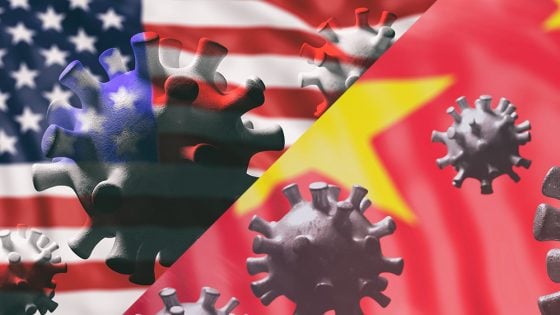
The coronavirus outbreak has already impacted the global supply chain and sent shock waves through the stock markets. But as the spread of the new coronavirus in China continues and causes even more factory shutdowns, the effect on global industrial supply chains could linger for years after it worsens.
Chinese industrial production in January and February is more than 20% lower relative to the average of the other 10 months of the year, a consistent pattern over the past decade. Some of this coincides with the Chinese New Year, which already has businesses around the globe scrambling. And things could get worse as workers get sick and factories shut down. Even manufactured items with a very marginal quantity of Chinese content will be affected as production is halted, and the increasing complexity of products means replacing specialized manufacturers is difficult, according to a report by The Wall Street Journal.
Coronavirus: The Best Face Masks And How To Prevent Contraction Of The Virus
10 Items Often Overlooked By Preppers
Evidence from previous unexpected supply shocks is discouraging. General Motors shuttered U.S. and European plants after earthquakes in Japan in 2011 and again in 2016 because vital parts that couldn’t be easily found outside Japan suddenly became unavailable. Floods in Thailand in 2011 forced long-lasting changes to supply chains, even after immediate effects had dissipated.- The Wall Street Journal
With face masks already selling out, and very few even left that will protect the user in any capacity, this manufacturing shock could present a problem. Moldex-Metric Large N100 Disposable Particulate Respirator with Ventex Exhalation Valve is still in stock. But a quick online search is not resulting in much else. The 3M N100 Particulate Respirator (left)
is also still available, but it looks like prices on it continue to climb as the finite economic law of supply and demand take hold.
The International Monetary Fund has drawn attention to this particularly steep impact of so-called risky imports. These are items such as complex machine and vehicle parts, hard drives, and certain electrical items that are particularly vulnerable to supply shocks. For every 1% increase in such risky imports from a country that suffers a natural disaster, there is a 0.7% fall in the importer’s exports during the same year.
And most just anticipate this problem to get worse as the global supply chain becomes impacted even more. Additionally, the ramifications of this outbreak could be felt for years. Couple this with the fact that manufacturing is still in recession and we could have a major problem on our hands.
Federal Reserve Economists: Tariffs Hurt Manufacturing & Cost The U.S. Jobs









0 Comments